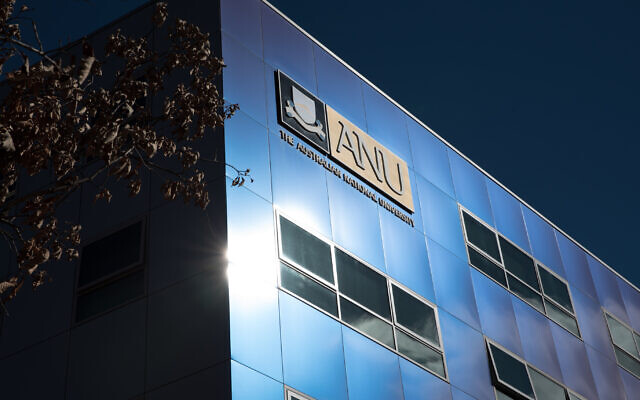ANU rejects IHRA definition
'The university's view is that it has sufficient protections and measures in place to help prevent and respond to any form of discrimination within its existing policies and procedures'
“It never ceases to amaze me the lengths that people will go to to deny or obfuscate the existence of antisemitism,” said co-chief executive officer of the Executive Council of Australian Jewry (ECAJ) Alex Ryvchin in response to The Australian National University (ANU) rejecting the International Holocaust Remembrance Alliance (IHRA) definition of antisemitism last week.
The rejection comes after an open letter from the Parliamentary Friends of IHRA was sent to Australian universities, urging the them to formally adopt the definition.
Federal Member for Macnamara Josh Burns – who is co-chair of the Parliamentary Friends of IHRA group alongside Allegra Spender and Julian Leeser – told The AJN, “While some universities have not yet followed the lead of the University of Melbourne, Monash University and others, we will continue to work constructively with the university sector to encourage them to adopt the IHRA definition,” adding, “Defining antisemitism helps institutions better understand this type of discrimination and assists them to take action if it occurs.”
A spokesperson from ANU told The AJN that the university “looked closely” at the IHRA definition of antisemitism, “through a specialist working group of [the] ANU academic board, as is conventional for such matters”.
“After extensive due diligence, the university’s view is that it has sufficient protections and measures in place to help prevent and respond to any form of discrimination within its existing policies and procedures,” the spokesperson said, adding that they are “confident” that ANU’s “existing policies and procedures are well equipped to help address any potential antisemitism or other forms of discrimination if they arise”.
An Australasian Union of Jewish Students (AUJS) ACT executive explained that their primary concern regarding the university’s rejection of the definition is that “Jewish students were not consulted.
“Given that we are the ones who experience antisemitism on campus, it should not be too much to ask for us to be invited to the table,” they added.
Echoing these sentiments, Zionist Federation of Australia (ZFA) president Jeremy Leibler said, “The ANU’s decision betrays a profound ignorance about both modern antisemitism and the IHRA definition, which is ironic coming from a place of learning, and likely stems from the fact that the ANU didn’t speak with any representative Jewish organisations before making its decision.”
Leibler continued, “Adoption of the definition won’t prevent criticism about Israel. It cannot and isn’t designed to do so. Rather, its purpose is to help well-meaning people engage in conversations without needlessly offending a long-persecuted minority.”
Rvychin told The AJN, “In response to rising antisemitism globally and in Australia, the Jewish community is seeking the adoption of a widely accepted scholarly definition of antisemitism, not as a legislative or punitive measure but to help institutions and individuals understand this deadly hatred.”
View this post on Instagram
Meanwhile the University of Sydney Students’ Representative Council (USYD SRC) made a post to its instagram page about ‘Why institutions should not adopt the IHRA definition of antisemitism’, saying that it “targets Palestinians” and those who wish to advocate for them, and it “compromise[s] the safety and rights of academics and students alike”.
In response, AUJS NSW political affairs officer Rachel Palmer said, “The USYD SRC and the autonomous collective against racism (ACAR) are once again telling Jewish students what antisemitism is or isn’t. Addressing antisemitism and racism on campus means consulting with those impacted – what makes Jewish students the exception?”


comments